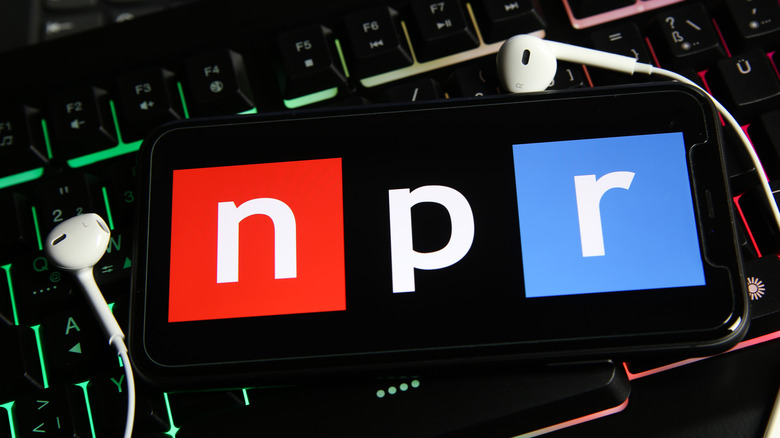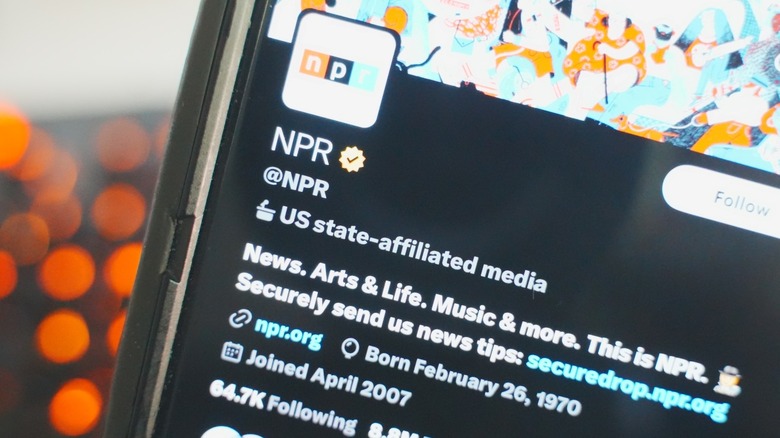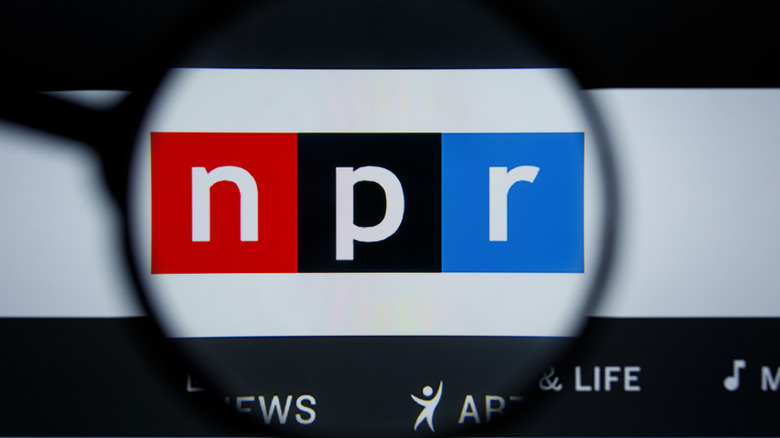Twitter Quietly Changes Policy To Slap NPR With State-Affiliated Media Label
Something strange has happened with National Public Radio's (NPR) Twitter account — Twitter now labels it as a member of United States state-affiliated media. While NPR was established as an act of Congress, it officially claims to operate as a non-profit organization that runs independently of any governmental operations. Apparently, someone at Twitter (perhaps Elon Musk) disagrees. In an official statement, NPR lambasts the decision, which it said happened "suddenly" and without warning, and defends itself by noting that less than 1% of its funding comes from federal sources.
The organization attempted to contact Twitter for clarification, but it was met with the same immature automatic poop emoji response that journalists have recently been met with under Elon Musk's controversial reign as head of Twitter. The combative billionaire tech mogul has warred with the media as a result of the ruthless scrutiny he's faced since taking the helm. But Musk directly offered a slightly more telling response courtesy of his own Twitter account, suggesting that the decision "seems accurate" alongside a screenshot of the company's official definition of state-affiliated media.
"State-affiliated media is defined as outlets where the state exercises control over editorial content through financial resources, direct or indirect political pressures, and/or control over production and distribution," the quote reads. One could surmise from how Musk tweeted that he had no direct involvement in this decision, though critics are understandably skeptical of that possibility. Regardless, the question remains the same: what did NPR do to deserve this?
Does NPR deserve the state-affiliated media label?
By the previous definition, one could argue that NPR scantly meets those qualifications despite its earnest attempts to explain that its journalistic process is completely independent. But NPR is widely accepted as a non-biased, trusted source of information typically devoid of any far-leaning agenda outside its goal to spread the truth. NPR also reminds the public that it receives most of its funding from sponsorships and fees from member and affiliate stations that are also part of the state-funded Corporation for Public Broadcasting. It suggests that the federal funding it receives helps supports those stations and that the stations themselves are not obligated to license content exclusively from NPR.
Before the change, Twitter's website used NPR alongside the U.K.'s BBC as an example of a state-financed media organization that doesn't cross the now-blurred line into state-affiliated media. At the time of writing, that help document has been updated to remove NPR from the example provided, leaving only BBC. For what it's worth, Facebook also labels state-affiliated media, and NPR has received no such designation there. Funnily enough, Voice of America — a state-sponsored media station that publicly admits it's fully operated by the U.S. Agency for Global Media and funded by U.S. Congress — doesn't have such a mark on its Twitter account.
What does this mean for NPR?
Ultimately, this labeling doesn't impact NPR's ability to report or operate in the same capacity it always has. It's Twitter's prerogative to label these organizations in whichever way it sees fit. But for those who have grown to trust Twitter as a viable platform to follow the world's news, the label can damage a publication's reputation as a reputable, independent source not controlled by government interests. Free speech and information extremists are likely to write such platforms off based on the designation alone, as they distrust their ability to report information that would harm their respective country's image.
It's especially damning in today's political climate. While the 2016 U.S. election kickstarted the bitter war between red and blue, Donald Trump's loss in the 2020 presidential election escalated the finger-wagging to new uncomfortable heights. The Trump campaign loudly exclaimed beliefs of election tampering and fraud by the democratic party. While there has been no concrete evidence to suggest it was true, it was also previously found that foreign actors associated with nation-states like Russia may have manipulated previous election outcomes by sponsoring propaganda spread across popular social media networks.
Regardless of which accounts were true, the election events compelled these free speech platforms to bolster their trustworthiness with new tools and measures to combat these interference tactics. For Twitter, one of those measures was implementing a label that clearly marked state-sponsored news organizations and publications when viewing their tweets or visiting their Twitter accounts.


